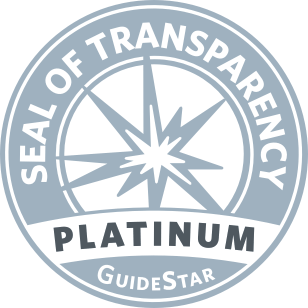In 2020, I went through the roughest patch of my life. I’ll save that story for another day, but I wanted to share what helped get me out of that dark place.
In the depths of my depression, the last thing I was thinking about was how these events would change my life in a positive way. When you’re going through a terrible time, the most annoying thing in the entire world is when people tell you, “You’ll be okay! Just be happy! Time heals all wounds!” Not helpful.
You know what is helpful? Doing things—i.e., having experiences.
That’s what finally pulled me out of the abyss. I had fallen to a point that was so low, I was genuinely afraid of what might become of me. That’s when I decided there was nothing to lose—if I was ever going to be happy again, I had to do something different.
I started small. Every time I wanted to climb back into bed, I chose a healthier activity instead. I walked through parks. I read. I rode my bike. I cooked. Even basic things like taking a bath and cleaning my place helped. None of these things were revolutionary, but they interrupted my established pattern of sitting around passively and wallowing in my pain.
That interruption is powerful because behavior feeds emotions. It’s all a big cycle, where emotions influence thoughts, thoughts influence behavior, behavior influences the experiences you have, and your experiences influence your emotions. This cycle is often self-reinforcing. Research shows that about 90 percent of our 60,000 daily thoughts are recycled. We fall into patterns, and those patterns can keep our biology, neurocircuitry, neurochemistry, neurohormones, and even genetic expression stuck in a bad place.
These little experiences started to nudge my emotions in a new direction, and the difference became obvious when I started doing them consistently. One new daily routine drastically changed my mood: doing a simple gratitude practice while watching the sun rise and set each day. It forced me to get up, take my dog outside, and bookend my days by thinking about the positive aspects remaining in my life. It also helped regulate my sleep, which made me feel physically healthier and more energetic. This practice became my favorite part of my day, and I still do it.
It was important that these experiences were small because I didn’t have the drive for anything more. But when I took a walk instead of lying down and diving into a downward spiral of depressing thoughts, I felt a little better—at least I could pat myself on the back for getting out of the house. Bit by bit, I started to rebuild the energy and desire for bigger things.
The pain was inevitable, but suffering was optional. As I refocused my mind away from the suffering, novel experiences became more powerful. I tried adrenaline-filled activities like spearfishing and rollerblading down the boardwalk, as well as calming ones like painting, writing poetry, and roasting my own coffee beans. I recreated dishes from places I had visited, working my way from easier ones (like the egg sandwich from Lawson’s convenience store in Tokyo and the chai tea from Dishoom in London) to harder ones (bean-to-bar chocolate and home-cured charcuterie).
As pandemic restrictions started to loosen a little, I was overjoyed to find my pod of friends interested in doing all sorts of new activities—tie-dying clothes, teaching ourselves to roll sushi, hosting Connect Four tournaments, fermenting and labeling our own hot sauce and pickles, and sneaking out to Venice Beach at midnight to swim in the bioluminescent waves. As bad as the pandemic was in many ways, seeing others try new things with people they love was a bright spot, a small glimpse of what life should be like.
These experiences gave me natural bursts of serotonin and dopamine—feel-good hormones—that jolted me out of my depression temporarily. The novelty forced me to pay close attention to the task at hand, leaving little room to dwell on the past or worry about the future. And when I succeeded at something new, it helped build my confidence and courage.
My personal experience aligns perfectly with scientific research. The evidence states that simply being more present by doing something new stimulates and activates regions of our brain that improve our mood. So, the next time you’re feeling life close in on you, put down the remote and try something you’ve never done before. It’s not as easy, but it works.
—
The Science Behind Having Novel Experiences & the Correlation of Increased Mental Health
Neuroplasticity: Novel experiences stimulate the brain’s neuroplasticity, which is its ability to adapt and rewire itself. This can lead to increased cognitive flexibility and improved mood regulation. It can help break the cycle of negative thought patterns often associated with depression.
Increased Dopamine: Novel experiences can trigger the release of dopamine, a neurotransmitter associated with pleasure and reward. This can create a sense of enjoyment and motivation, which is often lacking in individuals with depression.
Reduced Ruminative Thinking: People with depression tend to ruminate on negative thoughts and feelings. Engaging in new experiences can redirect their focus away from rumination, providing temporary relief from distressing thoughts.
Boosted Confidence: Successfully navigating new experiences can boost self-esteem and confidence. Achieving a new skill, trying something out of one’s comfort zone, or simply having a positive experience can enhance self-worth and self-efficacy.
Sense of Achievement: New experiences can provide a sense of accomplishment. This can be particularly important for individuals with depression who may struggle with feelings of hopelessness and helplessness.
Increased Social Interaction: Many new experiences involve interacting with others, whether through group activities, classes, or simply sharing an experience with friends. Social interaction is beneficial for mental well-being, as it can reduce feelings of isolation and loneliness often associated with depression.
Distraction from Negative Emotions: Engaging in new activities can serve as a healthy distraction from the overwhelming negative emotions that come with depression. It offers a break from the emotional turmoil and can provide moments of respite.
Mindfulness and Presence: Experiencing something new often requires being present in the moment. This mindfulness can help individuals let go of past regrets or future worries and focus on the here and now, which is a key element of many therapeutic approaches for depression.
Stress Reduction: Novel experiences can be a form of stress relief. They can provide an opportunity to relax and recharge, reducing the physical and emotional strain often experienced by those with depression.
Sense of Purpose: New experiences can instill a sense of purpose and meaning in life. They can be a reminder of the richness and diversity of life, motivating individuals to overcome depression and discover new sources of joy.





